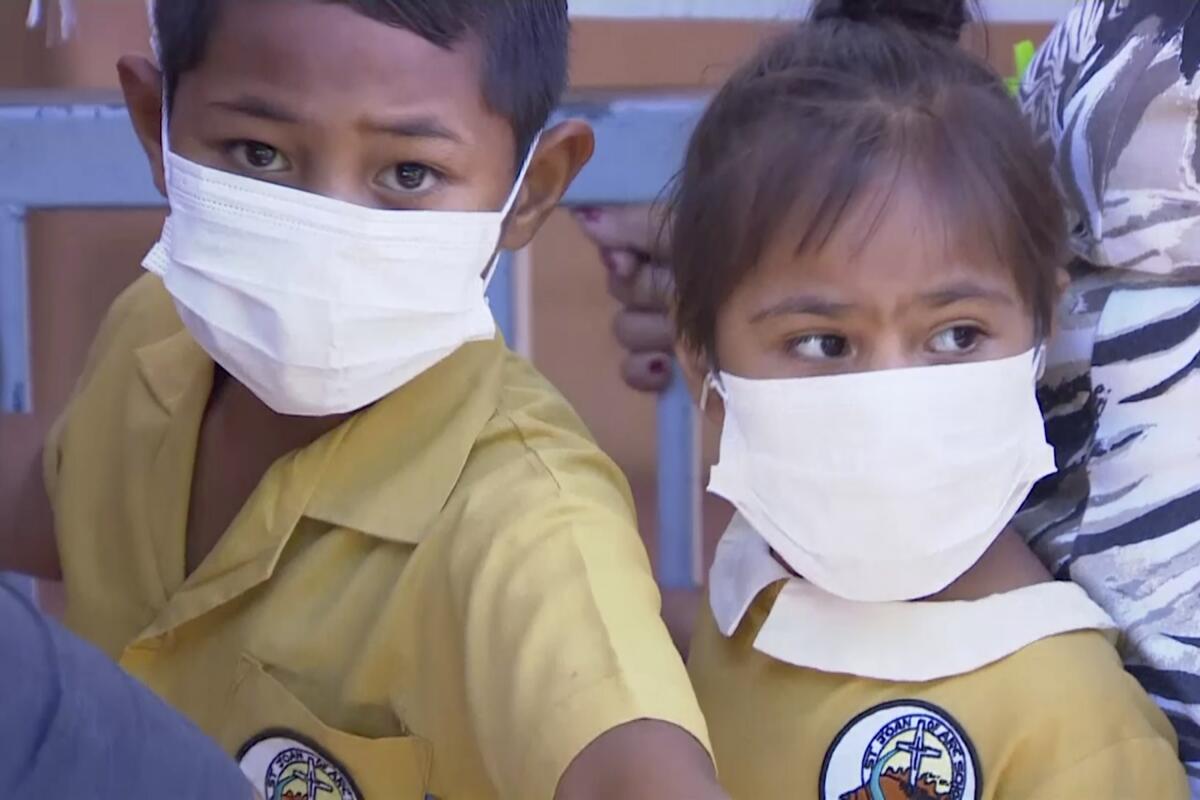Editorial: Measles outbreak in Samoa shows what can happen when vaccine opponents prevail

- Share via
In July 2018, two young children died shortly after being injected with a contaminated measles-mumps-rubella vaccine in a clinic in Samoa. A nurse, it turned out, had mixed the vaccine powder with expired muscle relaxant instead of water. It was a tragic error that cut two lives short and sent the nurse and another colleague to prison for negligence.
But it was an accident, not evidence that vaccines are inherently dangerous. Nevertheless, anti-vaccination activists seized upon this sad story to push their false narrative that immunizations are more harmful to children than the diseases they are designed to protect against. It’s hogwash, of course. Years of data and scientific study have confirmed that vaccines are overwhelmingly safe. And the fact that a disease that killed millions of people, most of them of babies and children, on a regular basis before MMR vaccines were widely available now has a fatality rate just a fraction of that should be proof itself that immunization works.
But the fearmongering on social media landed a hook in Samoan parents, who now had an example of real risk to their children that seemed to outweigh the abstract threat of a disease that had virtually been eradicated from the developed world over the last generation. Meanwhile, the government halted its MMR vaccination program during the investigation. Vaccination rates in the Pacific island nation plummeted to just 31%, far below the 95% immunization rate that public health officials say is necessary to prevent a disease from spreading through a community.
It was supremely bad timing. Over the last two years, measles has staged a global comeback, thanks to vaccination rates eroded by a combination of complacency and suspicion. In 2018, measles outbreaks cropped up around the globe, including the U.S., killing 140,000 people, according to the World Health Organization. This year, there have been more measles cases in the U.S. than in any year since 1992.
Given the circumstances and the fact that measles is one of the most contagious diseases known to humans, an outbreak in Samoa was all but inevitable. An estimated 2% of the population has been infected, killing 63 people as of Friday afternoon , most of them babies or small children, and forcing the government to shut down for two days last week to focus on getting vaccines to as many people as possible. More people are likely to die before the outbreak is over, and some will suffer from complications from the illness for the rest of their lives.
This is a stark and sad illustration of what can happen when the agents of fear and misinformation (Robert F. Kennedy Jr., we are looking at you) convince caring parents to shun childhood vaccinations. Too often the fact that measles and other preventable infectious diseases are extremely effective killers gets lost in the debates focusing on parental rights and the mostly unfounded fears about “vaccine injuries.” (It’s true that some people have severe reactions to vaccines, but data show they are uncommon and rarely life-threatening.)
The Samoan government is making the right moves to address this outbreak and to ensure it doesn’t happen again. In November, it called a state of emergency and made vaccines mandatory, an extreme but in this case necessary measure. But, horrifyingly, even as health officials launched a massive vaccination campaign, anti-vaccination activists have continued spreading misinformation on social media, including the government’s own Facebook page. For the sake of Samoa’s children, we hope that reason prevails.
More to Read
A cure for the common opinion
Get thought-provoking perspectives with our weekly newsletter.
You may occasionally receive promotional content from the Los Angeles Times.










